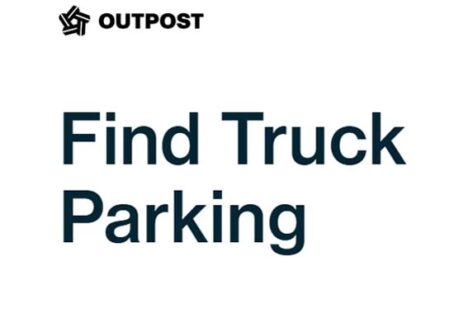Study shows truckers find truck parking information systems useful
Truckers are finding truck parking information systems useful and accurate but still emphasize the need for more capacity, according to the latest research by the American Transportation Research Institute.
On Monday, June 14, ATRI released a study titled “Truck Parking Information Systems: Truck Driver Use and Perceptions.” The goal of the research is to identify how drivers are receiving truck parking availability information and driver preferences for how that information is sent out. For the most part, truckers reacted favorably to the technologies.
Since Jason’s Law, which requires the U.S. Department of Transportation to evaluate commercial vehicle parking and rest facilities, was enacted in 2012, several states have responded to the truck parking crisis with truck parking information systems. Those systems comprise mostly of variable message signs on roads and smartphone apps. Despite many truckers balking at the idea of information systems, ATRI’s study suggests most truckers are using them and find them helpful.
Truck parking apps
According to the study, about 57% of truckers have used a truck parking app in the past year. That percentage decreases as truckers get older. For example, more than 80% of drivers less than 25 years old use a parking app. However, only about 30% of those 65 and older use an app.
“It is unknown if this is a function of veteran drivers already knowing when and where they plan to park, or younger drivers being more tech-savvy,” the report states.
A similar pattern is seen when accounting for years of driving experience. More than 80% of drivers with one to five years of experience use a truck parking app, compared with less than half of those with 11 or more years of experience.
Drivers paid by the mile are twice as likely to use a parking app as their truck parking information system. Also, parking apps had the highest use among truckers working for larger fleets. About 65% working with fleets of 1,000 trucks or more use a parking app, compared with just half of drivers in fleets of 20 or fewer trucks.
The most used truck parking apps are:
- Trucker Path (46%)
- MyPilot (26%)
- TruckSmart (18%)
- Park My Truck (3%)
- Truck Parking USA (2%)
- Truck Specialized Parking Services (1%)
Variable message signs
Motorists have likely seen truck parking information systems in the form of variable message signs, i.e., those digital signs showing how many truck parking spaces are available at the rest areas ahead. In fact, 70% of truckers surveyed by ATRI said they have seen those signs, but are they useful?
According to ATRI, most truckers (70%) do find those signs useful. However, fewer long-haul truckers found variable message signs useful compared to other operations. About two-thirds of long-haul truckers find that type of truck parking information system useful, compared with more than 70% of both inter-regional and regional truckers. ATRI surmises this could be because long-haul truckers “need and desire to plan truck parking much farther out than (variable message signs) makes practical or their experience and familiarity with regular route parking locations.” The latter is supported by usefulness when adjusted for experience. Nearly 80% of drivers with five years of experience or less find the signs useful, compared with less than 70% of truckers with 11 or more years of experience.
Despite finding variable message signs useful, they appear to be not used very often. Less than half of respondents reported taking action based on those signs, with more than half saying they have not taken any action. In fact, the only group where more than half took action based on those signs were drivers with one to five years of experience. Most of those with more experience or less than one year behind the wheel took no action.
For most truckers usefulness of truck parking information systems is largely based on accuracy.
When it comes to variable message signs, only 60% of long-haul drivers found them to be accurate. Comparatively, Nearly 70% of interregional and regional drivers find them accurate. By years of experience, nearly 80% of those with one to five years behind the wheel find the signs accurate, compared with those with less than one year (55%), 6-10 years (67%) and 11 or more years (61%).
“This perception of accuracy is important, as those who do not find the signs accurate will not use them,” the report states. “While the relationship between accuracy and driving experience may have its genesis in experienced drivers having direct familiarity with the parking facilities and space availability (and hence less tolerance for technology inaccuracy), open-ended comments indicate that experienced drivers simply have had more observations and encounters with space availability inaccuracies.”
Truck parking capacity vs. truck parking information systems
However useful truck parking information systems may be, what drivers need is an increase in truck parking capacity. They indicated just that.
When asked how they would address the truck parking crisis, 72% said to increase parking capacity. At only 16%, the second-most common response is to improve the placement of the signs and how data is presented. About 12% want to improve the accuracy of parking information, and 6% want to improve the relevance of parking information, including updating more frequently.
More than 1,100 drivers completed ATRI’s truck parking information systems survey. Most of the respondents were more experienced company drivers working for larger fleets:
- 68% had 11 or more years of experience.
- 70% are in the for-hire segment, compared with 24% in the private sector.
- Two-thirds are company drivers, with only one-third owner-operators.
- 31% are long-haul drivers, 35% inter-regional, 26% regional and 8% local.
- 23% driver for fleets of 1,001 or more power units, 14% with 501-1,000 units, 26% 51-500 units, 19% with six-50 units, and 18% with five or less.
To read the full report, click here. LL
More stories about truck parking information systems:
- Midwest transport officials need truckers’ input on parking system survey.
- Ohio to launch its truck parking information management system.
- Installation of truck parking info system underway in Kansas.









